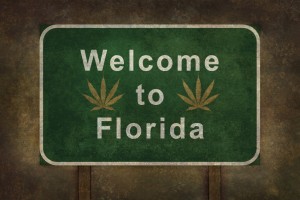 Federal Banking Rules Not Working In Favor Of The Legal Cannabis Industry
Federal Banking Rules Not Working In Favor Of The Legal Cannabis Industry
Legal marijuana entrepreneurs still find a difficult time getting banks that will accept them. The situation is devastating for the cannabis industry given that more and more states have decriminalized the medicinal and recreational use of marijuana.
Mason Tvert is a renowned Denver-based marijuana policy specialist who has actively participated in the passing of cannabis laws, e.g. Amendment 64 in 2012 that saw recreational cannabis become legal in Colorado.
The struggle to streamline marijuana banking laws
Tvert has spent years trying to solve the banking issue in the cannabis industry. And though hailed as “marijuana’s top evangelist,” he admits that streamlining marijuana banking laws has been a “formidable hurdle.”
But he is positive, “more so now that there’s a bill in the House of Representatives with over 90 co-sponsors: The bipartisan measure dubbed the “States Act” sponsored by Massachusetts Senator Elizabeth Warren(Democrat) and Colorado Senator Cory Gardner (Republican) may shed new light on the issue.” Tvert says.
According to him, passing this bill will mean all transactions initiated at the state level will be viewed as legal under the federal law provided that the business falls in line with the state laws.” Only that way can banks feel safe (from feds) working with entrepreneurs in the pot industry.
Tvert, however, remains realistic about his expectations despite his “strong support for the measure.”
“Regrettably, it’s one of many matters falling victim to the stalemate we experience in Congress. Big Banks need reassurance—most of them want it in a bill and not merely in policy enforcement.”
Among the victims is MPP, the firm that Tvert’s presently stands for. Last year, MPP’s supporting bank PNC—a non-profit advocacy foundation they’ve been working with since 1995— surprisingly cut ties with the firm.
Tvert says that according to news stories, PNC had concerns about the dangers of working with marijuana-related business.
Luckily, MPP later found a new bank that they have kept secret, but Tvert is afraid they may lose a partner owing to the unforgiving banking policies.
Why Did PNC reject MPP after years of working together?
“I’m not aware of the bank’s concern was “offering services to a state-regulated marijuana business,” says Tvert.
The marijuana activist also says he is not aware whether the bank’s decision was linked to the Trump administration known for fervently anti-marijuana advocates like Attorney General Jeff Sessions.
How are marijuana businesses handling their finances?
What happens to all the money these legal cannabis firms make if banks won’t work with them?
Most legal pot companies are now forced to deposit money in safe boxes or contract their cash holding firms, says Tvert.
Secondary vendors like security firms and armored vehicle companies have also come in to fill the niche.
Wrap Up
While these “banking” options are helping marijuana businesses move on, it’s obvious these alternatives are still enough surety of legitimacy for such an upcoming industry.



 As each state legalizes medical and/or recreational marijuana, much has been said about the issue of money. Despite the continued federal prohibition, the marijuana industry has grown rapidly. The emerging market brought in nearly $9 billion in sales in 2017, according to managing director of BDS Analytics, Tom Adams. With the POaddition of the Golden State, it is estimated that this number will increase to $11 billion in 2018.
As each state legalizes medical and/or recreational marijuana, much has been said about the issue of money. Despite the continued federal prohibition, the marijuana industry has grown rapidly. The emerging market brought in nearly $9 billion in sales in 2017, according to managing director of BDS Analytics, Tom Adams. With the POaddition of the Golden State, it is estimated that this number will increase to $11 billion in 2018. Cash is King, but having a multibillion-dollar industry rely entirely on it can be a struggle! The whistleblower, Senator Cory Booker pointed out an issue that lawmakers must mull over. He says businesses, even those that sell medical cannabis cannot obtain bank accounts, access funds or issue payroll – even in a place like New Jersey, where medical marijuana has been legal for almost a decade (since 2010). All these because marijuana is still classified as Schedule I under federal law.
Cash is King, but having a multibillion-dollar industry rely entirely on it can be a struggle! The whistleblower, Senator Cory Booker pointed out an issue that lawmakers must mull over. He says businesses, even those that sell medical cannabis cannot obtain bank accounts, access funds or issue payroll – even in a place like New Jersey, where medical marijuana has been legal for almost a decade (since 2010). All these because marijuana is still classified as Schedule I under federal law.
 Too much money? Is that even a thing? For marijuana-related businesses, it is. They make a lot of cash, but have no way to safely deposit it at the bank like other businesses. Banks are subject to heavy regulations and are unwilling to offer solutions to the cannabis industry. Under federal law, marijuana is still a Schedule I substance – listed alongside heroine and LSD. As far as the Drug Enforcement Agency is concerned, there is no accepted medical use of marijuana and a high potential for abuse.
Too much money? Is that even a thing? For marijuana-related businesses, it is. They make a lot of cash, but have no way to safely deposit it at the bank like other businesses. Banks are subject to heavy regulations and are unwilling to offer solutions to the cannabis industry. Under federal law, marijuana is still a Schedule I substance – listed alongside heroine and LSD. As far as the Drug Enforcement Agency is concerned, there is no accepted medical use of marijuana and a high potential for abuse. Banking partners and regulators have joined together to provide statewide access to
Banking partners and regulators have joined together to provide statewide access to  If all goes as planned, it would appear that Nevada will be the first state to allow recreational users to consume
If all goes as planned, it would appear that Nevada will be the first state to allow recreational users to consume  In the final days of the Maryland legislative session, top democrats agreed to the expansion of medical marijuana growers in the state.
In the final days of the Maryland legislative session, top democrats agreed to the expansion of medical marijuana growers in the state. 
